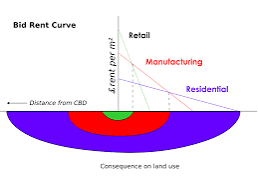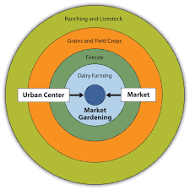Unit 5 Outline
5.0(1)
5.0(1)
Card Sorting
1/46
Earn XP
Description and Tags
Study Analytics
Name | Mastery | Learn | Test | Matching | Spaced | Call with Kai |
|---|
No study sessions yet.
47 Terms
1
New cards
Intensive farming practices
investing a lot of resources and labor into small tracts of land in order to increase yield
2
New cards
Market gardening
the relatively small-scale production of fruits, vegetables and flowers as cash crops, frequently sold directly to consumers and restaurants
3
New cards
Plantation agriculture
the form of Agriculture in which a single person or company owns a big farm and grows a single crop
4
New cards
Mixed crop/livestock systems
crops and livestock are raised on the same farm
5
New cards
Mediterranean agriculture
an agro-ecological strategy, an adjustment to particular climatic conditions in Mediterranean zones: mild, humid winter with no or very little frost, and a warm, dry summer
6
New cards
Extensive farming practices
system of crop cultivation using small amounts of labor and capital in relation to area of land being farmed
7
New cards
Shifting cultivation
an agricultural system in which plots of land are cultivated temporarily, then abandoned while post-disturbance fallow vegetation is allowed to freely grow while the cultivator moves on to another plot
8
New cards
Nomadic herding
the wandering, but controlled movement of livestock, solely dependent on natural forage
9
New cards
Ranching
the activity or business of breeding cattle on a ranch
10
New cards
Rural settlement patterns
the way in which people live and build communities in rural areas, or areas outside of urban centers
11
New cards
Clustered
an agricultural- based community in which a number of families live in close proximity to each other, with fields surrounding the collection of houses and farm buildings
12
New cards
Dispersed
a settlement structure in which individual farms and small groups of farmsteads or hamlets occur in a cluster of scattered parcels of land
13
New cards
Linear
comprised of buildings along a road, river, dike, or seacoast
14
New cards
Rural survey methods
metes and bounds, township and range, and long lot
15
New cards
Metes and bounds
the boundaries of a parcel of real estate that identified by its natural landmarks
16
New cards
Township and range
rectangular blocks of land about 6 miles square
17
New cards
Long lot
long, narrow grants of land along the rivers
18
New cards
Hearths of plant and animal domestication
Mexico (corn), Peru (potatoes), the Middle East (wheat and barley), Africa (soybeans and millet), and east Asia (rice)
19
New cards
Fertile Crescent
wheat and barley, and several pulses (grain legumes)
20
New cards
Indus River Valley
peas, sesame seeds, dates, wheat, barely, lentils, mustard, and cotton
21
New cards
Southeast Asia
roots such as the taro and yam, and tree crops such as the banana and palm
22
New cards
Central America
beans, cotton, potatoes, maize
23
New cards
Patterns of Diffusion in Agriculture
migration, cultural exchange of information, print, the internet, and scientific education
24
New cards
Columbian Exchange
introduced a wide range of new calorically rich staple crops to the Old World—namely potatoes, sweet potatoes, maize, and cassava
25
New cards
Agricultural Revolutions
a number of cultural transformations that initially allowed humans to change from a hunting and gathering subsistence to one of agriculture and animal domestications
26
New cards
First (Neolithic)
started around 10,000 B.C. in the Fertile Crescent, where humans first took up farming
27
New cards
The Second Agricultural Revolution
an unprecedented increase in agricultural production in Britain arising from increases in labor and land productivity between the mid-17th and late 19th centuries
28
New cards
The Green Revolution
was a period of technology transfer initiatives that saw greatly increased crop yields and agricultural production
29
New cards
Agricultural Production Regions
South and Southeast Asia, Western and Central Europe, and Central America and the Caribbean
30
New cards
Subsistence
form of farming in which nearly all of the crops or livestock raised are used to maintain the farmer and the farmer's family, leaving little, if any, surplus for sale or trade
31
New cards
Commercial (monocropping/monoculture)
a form of agriculture that is based on growing only one type of a crop at one time on a specific field
32
New cards
Bid-rent theory
a geographical economic theory that refers to how the price and demand for real estate change as the distance from the central business district (CBD) increases

33
New cards
Spatial Organization of Agriculture
the way that agricultural activities are distributed and organized across a particular area or region
34
New cards
Commodity chain
a process used by firms to gather resources, transform them into goods or commodities, and finally, distribute them to consumers
35
New cards
Economies of scale
a proportionate saving in costs gained by an increased level of production
36
New cards
Carrying capacity
the number of people, other living organisms, or crops that a region can support without environmental degradation
37
New cards
Von Thunen Model

38
New cards
The Global System of Agriculture
the complex network of economic, social, and environmental factors that shape the production, distribution, and consumption of agricultural goods around the world
39
New cards
Global supply chain
are networks that can span across multiple continents and countries with a purpose of sourcing and supplying goods and services
40
New cards
Consequences of Agricultural Practices
pollution
41
New cards
Pollution, land cover change, desertification, soil salinization
Overuse
42
New cards
Slash and burn, terraces, irrigation, deforestation, draining wetlands, shifting cultivation, pastoral nomadism
Agricultural practices
43
New cards
Challenges of Contemporary Agriculture
climate change, soil erosion and biodiversity loss and from consumers' changing tastes in food and concerns about how it is produced
44
New cards
Biotechnology, genetically modified organisms, aquaculture, fertilizer/pesticide use, sustainability
transfer of antibiotic resistance, toxicity and allergenicity
45
New cards
Urban farming, community-supported agriculture (CSA), organic farming, value-added specialty crops, fair trade, local-food movements, dietary shifts
Food movements
46
New cards
Food insecurity, food deserts, distribution systems
geographic areas where residents have few to no convenient options for securing affordable and healthy foods
47
New cards
Women in Agriculture
numerous labor intensive jobs such as weeding, hoeing, grass cutting, picking, cotton stick collection, separation of seeds from fiber, keeping of livestock and its other associated activities like milking, milk processing, preparation of ghee, etc.